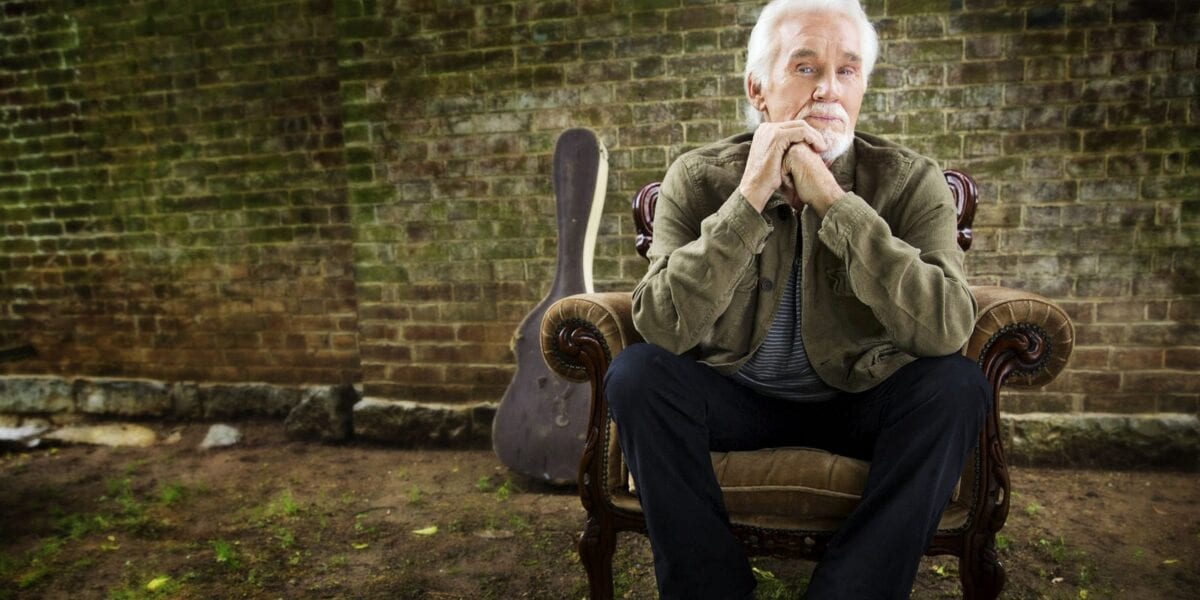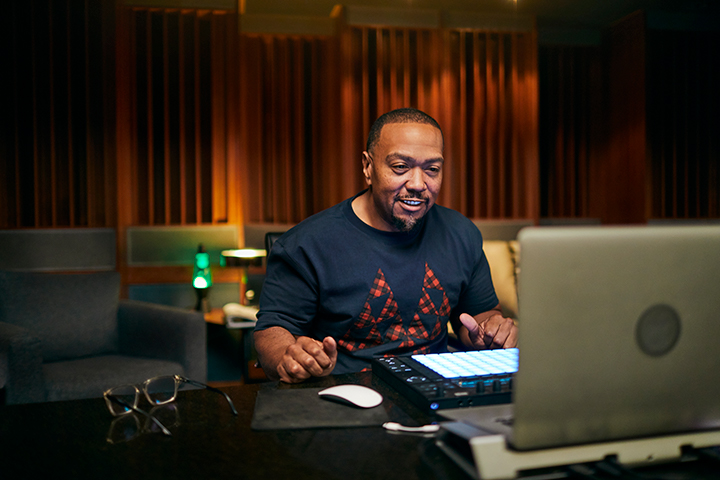Sure, Rogers has charted more than 120 hit singles across various music genres and sold over 160 million records worldwide in six decades, making him one of the best-selling American musicians ever. But he’s also an interior designer, home builder and realtor, lent his name to professional racecars, Kenny Rogers Roasters restaurant franchises, and has published four photography books. In addition to all that, from time to time, he has acted in scores of TV shows and movies.
Rogers released his signature hit, “The Gambler,” 40 years ago in late 1978. The single propelled the (then) 40-year old’s solo career and made his name synonymous with the song title. Soon after, other hits included “Lucille,” the Lionel Richie tune “Lady,” and the famous duet with Dolly Parton, “Islands in the Stream.”
Interestingly, he’s left his mark on the music industry in other ways. In 1968, he discovered the group that would eventually become The Eagles – via a chance meeting with front man Don Henley and bandmates. They all happened to be in the same Dallas boutique shop, as Rogers was on a tour stop with his band at the time, First Edition. In 1985, his recording studio was used to record “We Are The World,” the multi-artist song to raise money for famine relief.
In the business realm, he partnered with former Kentucky Fried Chicken CEO, John Y. Brown Jr., in 1991 to launch Kenny Rogers Roasters. He lent his name to the Gambler Chassis Co., a sprint car racing manufacturer known in the 1980s and 1990s as one of the fastest and widely used sprint cars.
The Edge asked the singer all about his career and various entrepreneurial endeavors.
You’ve been involved in various businesses, like a restaurant, real estate, racecars, so on. I’m wondering if there’s a common link, and why you chose these?
Kenny Rogers: The Roasters was an international concept… I thought it was a fun project. It was very well done. When you think back on it, it was one of the first health food options – you know, [with] the grease stripped off the chicken. And the food combinations were wonderful. And I thought it had a good image to it. So, I didn’t mind being a part of that.
The racetrack, it was the same thing. Some guys brought me this thing and said, ‘Can we use your name?’ I said, ‘Well as long as you don’t do anything that embarrasses me, then you’re welcome to use it.’
My investments have been predominately – I’d say 80 to 85 per cent – real estate… And I’ve enjoyed it. You know, I think you have to. I don’t know that everybody has this option, but I think you have to find something to invest in that you can enjoy owning it, in case you can’t sell it right away. You know, bring you pleasure in one form or the other.
And, in my case, fixing up the property. And sometimes I didn’t even get around to fixing it up. I’ve bought property that sold two months after I bought it – and I made a lot of money on it – and I didn’t get a chance to fix it up. Then, that was a little disappointing to me.
I know that sounds crazy, but money has never driven me. It’s always been my zest for life, if you will. I like getting up in the morning knowing I have someplace to go, and something to do.
You only need three things to be happy: Someone to love, something to do, and something to look forward to. If you have those three things, you should have a very special life.
What’s key advice from someone who has been successful in business?
Kenny Rogers: Well, I think what it really boils down to for newcomers – the best advice I can give you – is pay your taxes on time, put 20 per cent away, and then have some fun.
I think, get involved in business in something you care about. With me, I had recording studios, and I’ve always been a kind of real estate guy. I buy it, I fix it up, I sell it for profit, and I’ve done that 20 times. The only thing wrong is that when the real estate market goes, so do I.
I’m an interior decorator, as well. Half the fun has been, for me, fixing them up.
Kenny Roger’s Roasters has some 200 locations – tell me about what it’s doing, today?
Kenny Rogers: I’m still a shareholder, but it’s owned by the guy in Malaysia… I gave him the rights to do it internationally. He has done very well with it.
What did you think of the Seinfeld episode, “The Chicken Roaster,” that featured your restaurant?
Kenny Rogers: Oh, I thought it was hilarious. You know, Jerry – there were two shows where he opened for me. He missed the first show. He didn’t know where we were working, and he couldn’t find us. He never got there.
So, he did kind of a joke, and thought he was going to ride on my tour bus. We had to give him a lesson on ride seniority. But as always and usual, he was a great sport.
How did your parents influence you?
Kenny Rogers: I got my sense of values from my mom. She really knew how to put things into words. She told me once, ‘Son, always be happy where you are. Don’t be content to be there, but if you aren’t happy where you are, you’ll never be happy.’
And I thought that made good sense. There are ups and downs in this business, but even in the down parts, I used to say, ‘You know what? I’m still making music. That’s what I set out to do.’ I really appreciated it more.
You said in an interview that you were broke by the age of 30 and then broke by the age of 50. How did you turn things around?
Kenny Rogers: I was broke in the sense that I didn’t have the money – I didn’t have options. That’s what wealth gives you is options. I think at 30 and 50, I was trying to figure out – I was happy – but I knew I wanted to do something different. I wanted to accomplish more.
So, I stayed after it, and I really studied the music business. I realized there’s only two ways to compete: You can do what everybody else is doing and do it better – I didn’t like my chances – or you could do something nobody else was doing, and you don’t invite comparison.
If you look at my songs, they all fall into that category. I mean, country was really country when I came along. It was Johnny Cash and Merle Haggard, and it was beautiful country – and I miss that now. But I couldn’t compete with them, and I knew I couldn’t compete with them. So, I did something different, and I was lucky it was successful.
Dave Gordon | Contributing Writer




















